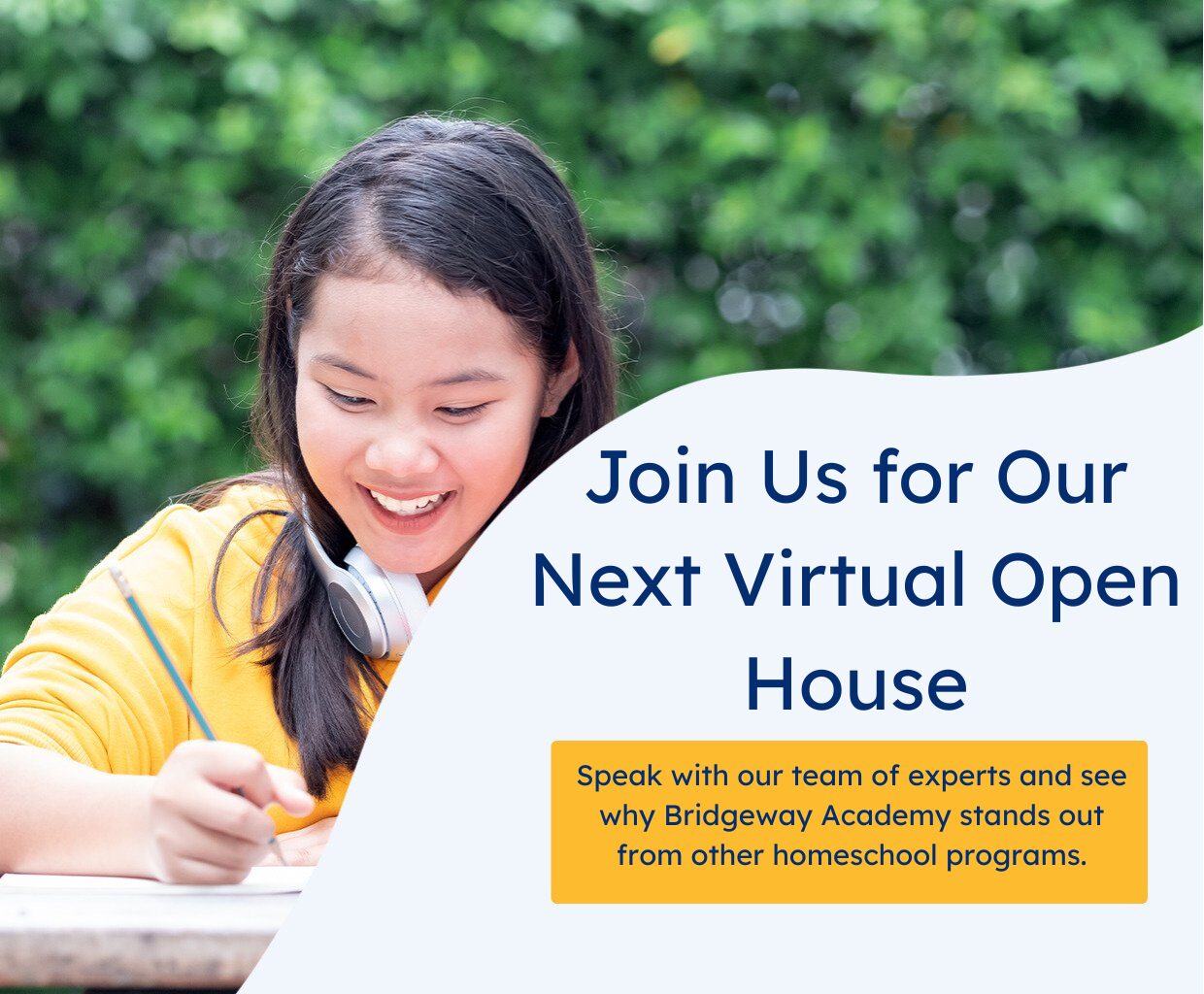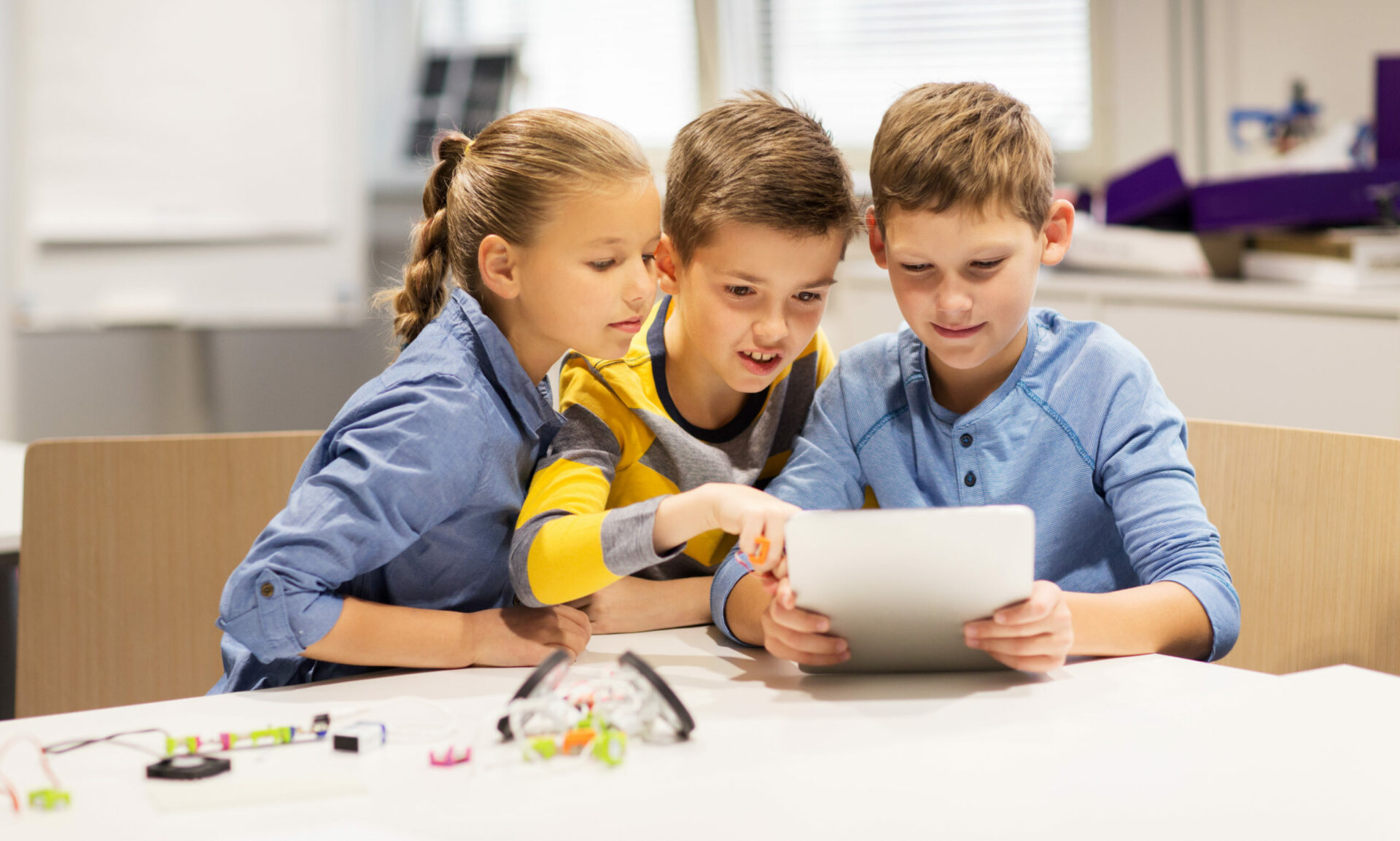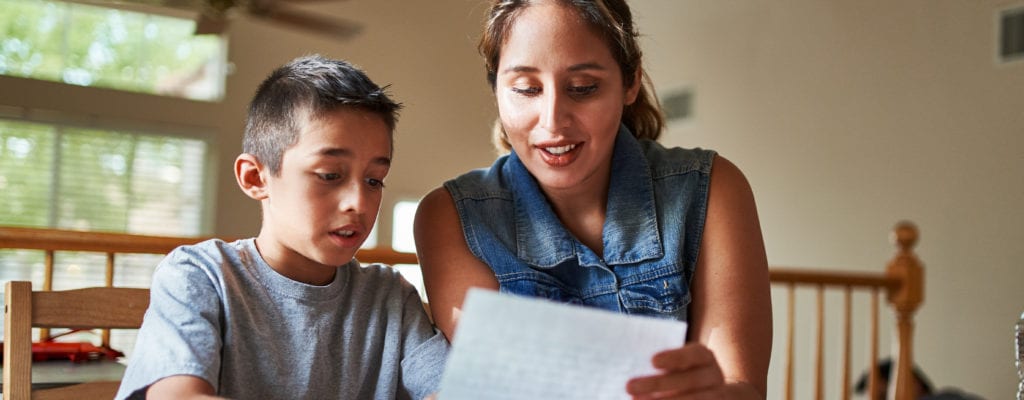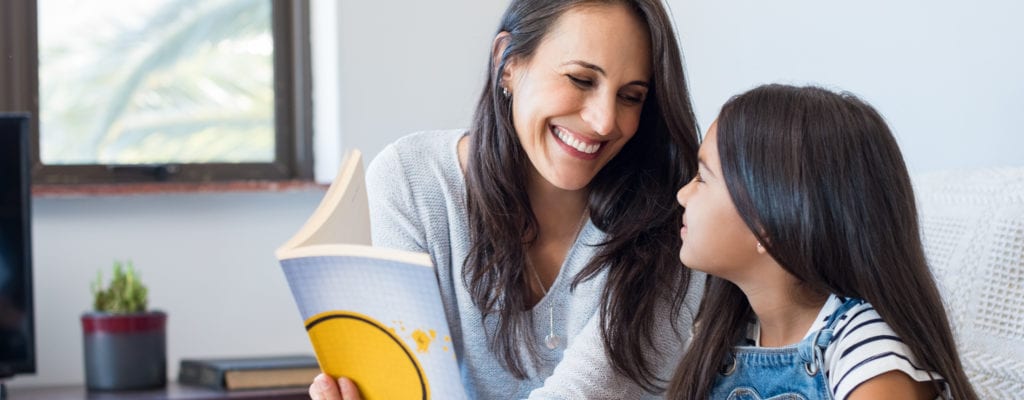As you’ve undoubtedly read and heard several times over the past few weeks, more than 55 million students in the United States are now home, with schools shut down from coast-to-coast due to the COVID-19 outbreak. A handful of states are considering closing for the fall semester, and it’s likely many more will follow suit. Since you’re reading this, odds are you’re experiencing the “school from home” dynamic right now!
Every state, and most likely most school districts within each state, had to create its “remote” or “distance” learning plan on the fly, and chances are they’re all a bit different even from teacher-to-teacher within the same school. But there is one thing they all have in common: they’re not homeschool. A quick search on TikTok, Instagram, Facebook, or any other social media platform shows parents frustrated with the process, confused by the myriad emails or notifications directing them in all different directions, and concerned about the quality of academics.
As a word of encouragement to those who are considering homeschooling as a solution, I want you to know that the experiences cannot really be compared. Homeschooling does not look anything like what public and private school students are participating in right now–and you deserve to understand the difference.
Planning
If your students are coming from a public or private school, you have been placed in a very challenging, unenviable situation as a result of the Coronavirus pandemic. Millions of parents like you with school-aged kids are used to working outside the home (whether full- or part-time) without concern for their child’s education, trusting it to their local school. But with most businesses shuttered, parents suddenly find themselves either working from home or, even worse, unemployed. Either way, you are now directly responsible for your kids’ education–territory that may be even more unfamiliar than working from home or navigating unemployment.
If you are a parent trying to juggle the role of working parent AND teacher–or at least tutor/proctor–your job is even more complex. And even though you have been your child’s primary teacher their whole lives, this can be quite intimidating. What do you do? How do you do it? There was no time for preparation or planning…you, like the teachers who are trying to support you, were just thrust into this position and left to your own devices to figure it out, with minimal guidance and materials to help.
This is not homeschooling. This is more, “OK, here’s what we have, let’s figure it out as we go.” Homeschooling is a far different experience. While most homeschooling parents don’t have a background in education, most have had time to plan and research their options. They have had time to develop that mental and emotional commitment to playing a central role in their child’s schooling. And that makes a huge difference.
Instruction
Even better, they have had time to evaluate curriculum, order the materials they need, and set up a classroom in their home. In addition, unlike what many are experiencing in this education contingency planning, homeschooling generally involves an organized, planned-out day that’s full of (here’s the big difference) individual instruction from either the parent or an experienced homeschool instructor.
Much of the “school at home” day initially involved assignments, independent study, and some “busy work” that bought many school districts and administrators some time to figure out a more comprehensive, organized plan that more closely resembles traditional school. The initial scramble to figure out the logistics of remote learning has gradually evolved into something akin to a regular school day, albeit with a more relaxed schedule and lighter workload.
Some schools have managed to work in teacher-led instruction in the form of pre-recorded or, in rarer cases, live online classes. While this is certainly an improvement over just handing out busy work, it’s still not homeschooling. That’s not to say that students can’t receive a quality education via remote learning or “school at home”, but the level and method of instruction is simply not comparable to traditional homeschooling, where each lesson is part of a carefully planned and thought-out, full-year curriculum…not something that was hastily thrown together at the last minute.
Parent Choice & Support
The difference here is pretty clear: homeschooling parents have the freedom to choose the curriculum that’s right for their children and their family values. And that curriculum includes guidance for parents on how to teach new concepts and support students through reinforcement activities as well as tools for assessment, creative ways to take learning off the page, and conversational instruction that encourages independent learning and critical thinking. This is what makes homeschooling such an amazing educational experience.
Individualized vs. One-Size-Fits-All
With public and private schools you’re stuck with what they’re providing, which is generally one-size-fits-all and influenced by the state and standardized testing. Parents have no say in the materials that their kids are using or the lessons that they’re taking. And that’s okay for many people; there are obviously millions of brilliant students with public school educations who achieve amazing things in this world. But the difference here comes down to choice.
As a parent now in charge of implementing the education at home, you have the choice to accept the one-size-fits-all approach or to map out your own path to success by teaching lessons in a way that your child learns best, with materials that are created specifically for children just like yours.
Homeschooling provides that unique opportunity to use curricula that promotes independent study, deeper learning, and creativity…not just worksheets, skill-and-drill, and simple lessons that don’t require much in the way of active engagement. That’s the difference.
Bridgeway Academy, known for its customized approach to education starts each student with a complete learning and personality style assessment that provides insight into how each student best acquires and retains information. This becomes the catalyst for a personalized learning plan that utilizes curriculum that appeals to each student and provides the challenge they need to grow–this ensures an education that is fun and free of frustration.
Student-Driven Learning
I’d bet you’re not going to find many public or private schools that allow the students to take the wheel and determine their own course of action when it comes to education. That’s simply not going to happen. One of the beauties of homeschooling? This can happen on any given day! And it’s a wonderful thing to witness. Imagine for a moment: you’re teaching your child about the American Revolution. All of a sudden, you see that spark–that instant when you know your child has fallen in love with the topic. Now, she wants to learn more. She wants to do her own research online, she wants you to take her to the library to check out more books on the subject, she wants to write a story about the Revolutionary War. She even wants to take a trip to Philadelphia to visit Independence Hall and the Liberty Bell! Guess what? As a homeschooler, she can do all of the above and not worry about falling behind in her schoolwork. The flexibility of homeschooling allows for students to go down that rabbit hole and completely immerse themselves in subjects they love–all it takes is a simple adjustment to your schedule, and she’ll be back on track in no time.
Public schools? Sure, that same spark or love for a topic can occur–it happens every day. But can the student put the rest of his or her subjects aside and focus on this topic more closely? Not unless he or she wants to fall behind in those other subjects. Heck, the child’s history teacher may only spend a week on the American Revolution. After that, it’s a test and onto the next lesson. For these students, the American Revolution simply becomes, well, history.
Not with homeschoolers. Rather than workbooks, teacher-directed lessons, and standardized assessments that make grading and feedback easy, homeschool children are free to use whatever resources they desire, go at their own pace, and can hold meaningful discussions with a parent/instructor about the subject matter that has captivated them. This is how passions are born.
Parents–I encourage you to give your kids that freedom right now while school has moved to this remote learning model. Many parents have reported that they are concerned about the very minimal amount of assignments for their students and want to ensure that their kids are not falling behind during this current crisis. You can incorporate this incredible benefit of homeschooling into your “school at home” plan by giving your students the freedom to dig deeper into what is sparking their interests. A great resource that is built around this student-driven learning model is Elephango, and their COVID-19 special offer means your students can start driving today. Be sure to check it out.
A Huge Confidence Boost
For many students, school can be a struggle. Whether that struggle is related to academics, health, or social issues, it can begin to define what they believe about themselves. And those defeating thoughts become so ingrained in far too many young people as they continue to face those same struggles day after day.
We have met incredibly gifted students who had no idea that there was an artist, athlete, scientist, politician, entrepreneur, or leader buried inside of them. Instead, they had accepted that they were not “smart enough” or “capable enough” to succeed.
And we are hearing those same stories from students who are now schooling at home. However, as they start to see the benefits of the one-to-one instruction, namely the lack of distractions and the ability to pursue their gifts and abilities, they are realizing their own incredible potential.
Here at Bridgeway Academy, we offer an educational experience that is tailored to each individual student’s needs. Our primary goal? To help students discover and pursue their personal excellence. Because that is the beginning of building the confidence that sets each child up for success. Once a child has that sense of confidence, he or she is more willing to push the envelope, take risks, experience new things, and embrace challenges. And that’s what education should really be all about for all children.
Learning Environment
As I mentioned earlier, many families were not afforded the opportunity to create an actual classroom environment at home once schools were closed. We’ve heard stories and seen pictures of students who are doing schoolwork on their beds, sprawled out on the floor, and even in front of a favorite TV show. And that’s fine for the short term. It may even work in the longer term for school-at-home. If most of their at-home education involves watching videos, using computers for online learning, and maybe some paper-based homework, kids can generally do that anywhere they like. But it will most definitely mean easy distractions and surface-level learning.
We recommend that parents take the time to create a dedicated space for homeschooling. Although the magic can happen anywhere, a dedicated space makes it easier to keep essential materials on hand and students focused. Because this is where the instruction and learning begins, it’s critical that this space is conducive to that. Homeschoolers need an organized area that includes comfortable seating, a spacious workspace like a table or desk, and a place for books and supplies. Because homeschooling emphasizes one-on-one instruction, having a comfortable environment that allows room for interaction is much more important than for kids who are essentially just doing schoolwork at home.
But don’t limit yourself to that space–take advantage of the opportunity to mix it up, especially when your kids need some space. But trust me, that space will be valuable for keeping things organized and to provide focus when you need it.
Experiences
Of course, times are different right now. No one can really do much of anything as far as field trips and other similar learning experiences are concerned. But during the course of a normal school year, there’s just no comparing the opportunities that homeschooled students can enjoy to those afforded to public or private school students. Think about field trips: how many do most school students get to experience each school year? Two? Three? Homeschoolers, on the other hand, can add those special extras as often as they’d like. Homeschooled students can literally go on as many adventures or field trips outside the home as their parents will allow (and can afford!). Museums, farms, city sightseeing tours, plays, sporting events, zoos, aquariums–nothing is off limits for a homeschooler.
The opportunities to see and learn new things and experience something different as often as schedules allow is unique to homeschooling. Unfortunately, schools simply don’t have the budget, resources, or time to accommodate that type of interactive, real-world learning.
While schooling-at-home during the Coronavirus pandemic is starting to evolve after the initial rush to implement distance learning, it’s just not the same as homeschooling. There are some positives to be found with a school-at-home scenario (flexibility, online tools for learning and communication, to name a couple), but it doesn’t provide the same type of instruction, environment, curriculum, or experiences as traditional homeschooling.
So, if you have been considering homeschooling for the first time, don’t let this crisis education plan be how you measure the rewards of homeschooling. Because the adventure awaits those who are willing to take that first step into true homeschooling.










